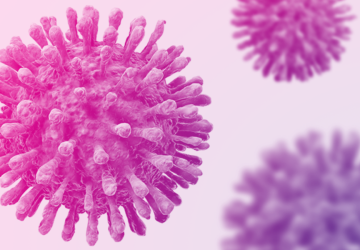 Austin, TX August 22, 2016: Spot On Sciences, Inc., an Austin-based medical device company, has been awarded a $225,000 grant by the National Institutes of Health (NIH) to develop an efficient and cost-effective method for solid biospecimen preservation that streamlines collection and preservation while improving sample stability and accessibility for molecular analyses.
Austin, TX August 22, 2016: Spot On Sciences, Inc., an Austin-based medical device company, has been awarded a $225,000 grant by the National Institutes of Health (NIH) to develop an efficient and cost-effective method for solid biospecimen preservation that streamlines collection and preservation while improving sample stability and accessibility for molecular analyses.
Solid biospecimens, such as biopsy tissue, can provide critical information to determine the optimal treatments for a disease. Spot On Sciences will leverage a novel blood collection device, HemaSpot, to capture small homogenized samples from freshly excised tissue. The HemaSpot cartridge rapidly dries and protects the sample. Once dried, analytes including nucleotides, proteins and small molecules show stability at room temperature.
Lead scientist for tissue research at Spot On Sciences, Dr. Rob T. Taylor, sees tremendous benefit in simplifying the process of tissue sample preservation, shipping, and storage. He states, “Quite simply, we’re looking to establish an alternative to the costly flash freezing of tissue samples and the toxic and time consuming processes currently used in sample prep. Already we’ve seen how personalized medicine in the treatment of cancer patients makes a difference as we improve our understanding of the molecular mechanisms in the tumor.” Dr. Taylor continues, “We want to simplify and enhance the preservation biomarkers from tissues for researchers in hospitals, laboratories, and in the field. Our preliminary data shows an ability to recover RNA transcripts, and protein activity from dried tissue homogenates derived from excised tissue the size of a pencil eraser. I’m very excited about the possibilities of this research.”
Advantages of Dried Blood Spot (DBS) Technology and HemaSpot
Based on well-established dried blood spot technology (DBS), common analytical methods such as qRT-PCR, immunochemistry and LC-MS/MS are highly compatible with these dried samples. The pre-cut paper on the HemaSpot device allows for easy removal of sample subsections for molecular analyses and research.
The benefits of this innovative method would simplify and reduce costs for biospecimen collection and storage while increasing availability for high quality samples for research and for molecular testing for prognostic and therapeutic benefit for cancer patients.
Spot On Sciences hopes to eventually provide a commercial kit for for use in medical facilities containing all needed reagents and a simple device for collecting and storing homogenized tissue samples. Simplifying this process will allow sample collection from any environment including remote, rural and low resource areas while providing stable, quality samples under a wide range of ambient conditions.
Spot On Sciences has developed HemaSpot™ devices (www.spotonsciences.com) to simplify collection, preservation and shipping of dried blood samples and to reduce pre-analytical errors such as sample contamination, humidity exposure and errors from remote and/or self-sampling. HemaSpot products are being used around the world for testing a wide range of analytes including small molecules, proteins and nucleotides.
About Spot On Sciences
Spot On Sciences, Inc., located in Austin, Texas, is a medical device company that is actively developing innovative methods for collecting and storing biological fluid samples. The company’s current product, HemaSpot™, allows for simplified blood sample collection and storage for dried blood spot (DBS) testing. Spot On Sciences aspires to change existing paradigms in this mature market with technologies that simplify processes, save time and reduce costs. The firm’s success has been recognized with many awards along with recent grants from the National Institutes of Health (NIH) and the Gates Foundation. In addition, funding has been received from DARPA SBIR Ph I, II and a Ph II Option contracts. For more information visit the company’s website at www.spotonsciences.com.



